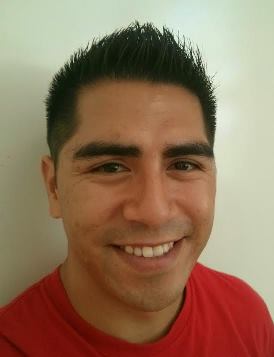 Degree & Year Graduated
Degree & Year Graduated
BS Computer Science, 2011
How did you become interested in your field?
In high school I was always interested in learning about how things worked and operated, whether it be a device, a computer, or software. I had a logical thought process when it came to problem solving in my classes, so math was always my strongest subject. Although I was never exposed to computer science or programming prior to SDSU, learning how to automate software sounded really, really cool.
What do you do for a living now? What do you enjoy most about your current career position?
I’m currently a PhD student at SDSU in the Computational Science department. I work in Dr. Rob Edwards’ bioinformatics lab where I am performing research to study computational methods in biology and bioinformatics.
Some things I enjoy most about my current position are: (1) I am continuously learning. This is in all subjects of bioinformatics, such as biology, computer science, computational techniques, and the biomedical field. I love to learn about and discover new technologies that better our world and research. (2) I am in a research role. One great part about research is being able to explore: you have to be up to date on current research from scientists around the world. This also forces us to network with other scientists to form partnerships or discuss problems in order to advance in your projects. This also applies to colleagues and lab mates; on a daily basis we hold discussions about useful methods we’ve discovered and/or problems we’re having in our own projects. (3) Opportunities for networking. As I mentioned before, networking is very important in achieving goals. It also gives us different perspectives on where our careers can take us in the years ahead. Research and science in bioinformatics involves more than just academia. San Diego is one of the biggest biotech regions in the US and scientists are only a small part of this. Being able to meet people in industry and hear their stories provides a really great perspective.
What have been the biggest challenges in your career?
My biggest challenge in my career has been deciding on career paths. My hardest and biggest decision was deciding whether to stay in industry or come back to academia. After graduating in 2011, I was hired to work at Life Technologies, a huge biotech company in San Diego. In 2012, after many weeks and many discussions with peers, mentors, and friends, I decided to quit and attend graduate school. Yes, classes will always be challenging and research projects will have its road blocks, but the decision to commit to a 5 year program was my hardest decision.
What is the best professional lesson you learned from the Computer Science Department?
The best lesson I learned from my Computer Science classes was to always be prepared for things to go wrong with your code. Inline documentation is key, therefore programming so you’ll be able to identify the bugs later is a time saver. Also, always, always, always try to work on projects aside from class work. Whether it be in a research lab or at home building software, do things that help you build your skills and showcase your abilities for later job opportunities.
What was the best class you took? Did you have a favorite Professor?
My best class has to be Data Structures. It was the pivot point where things in programming and computer science began to make sense. It molded my thought process in tackling programming problems in my following classes and in my research. I began to work with Dr. Rob Edwards after taking Data Structures with him and I became incorporated into his research lab. He’s definitely one of my favorite professors as he’s been a great professor, PI, and mentor to speak with when I had career- and academic-related questions.
What is your favorite memory from the time spent in the department?
My favorite memory was getting to meet the various students in the computer science department every semester. Everyone has a different background and a different goal in school. I believe this correlates well with how important computer science is in our society. It spreads into every aspect of our lives and can be applied by people with a wide range of skill sets.
What advice do you have for our current students?
My advice would be to never take your time spent in school for granted. There are many opportunities to network with other students and professors and to see what the world has to offer. What you learn in classes are very important in building your skill set, but that can only take you to a certain point. Use your time wisely to formulate what your goals will be after graduation. Spend some energy now setting yourself up to be successful; take the initiative to better yourself.
If you are an SDSU Computer Science alumni and would like to submit an alumni profile for the web site please email ajensen@mail.sdsu.edu

